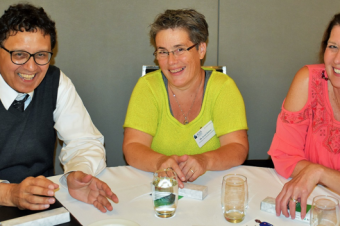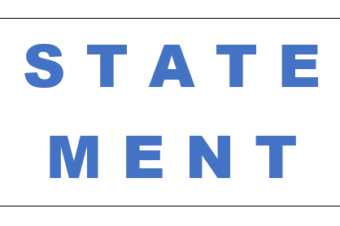europris.org
Prevention measures in European prisons delivered by Europris:
Netherlands
In the Netherlands prison teachers are qualified teachers employed by the Ministery of Justice. In most Dutch prisons education stopped as per the 12th of March. Untill then classes were still held as usual. Changes in national and local policy however, are made on a daily bases, and every prison has the right to see how they translate national policy into their local practice as long as the national regulations are observed. This means that in some prisons there still are small classes of only a few learners and a teacher. Most prisons have teachers available to provide the material as distance learning material, this is paper based, since there are no computers available in the living areas. To replace visits from friends and family provisions are made to have extra skype facilities through Ipads on the rings. Always surveyed by prison staff. All teachers have contacted eachother through email and exchange material that is made ready for paper based instruction or practice. In this way we do need to waste our time inviting the wheel over and over.
Spain
Source: http://www.canalsur.es/multimedia.html
Málaga, March 28th 2020
Since the prisoners in Malaga currently have no access to educational opportunities, they produced this video together with the prison staff.
When prisoners encourage us not to feel imprisoned.
The inmates of Malaga 1 prison also applaud at 8pm from their bars to encourage the public servants.
Prisoners help those who feel, now, like prisoners. Those in Málaga 1 prison, in Alhaurín de la Torre, have used their internal television channel to thank everyone for staying home, even though they have suspended all communications with the outside world because of the pandemic. They have taken advantage of their television channel to be able to send reassuring messages to their families.
Switzerland
Fribourg, March 25th 2020
In view of the developments of the corona pandemic, teaching at the Swiss Institute for Education in Prison SIEP was temporarily suspended 10 days ago. In the days that followed, the 35 prisons where SIEP is active were contacted to analyze the situation on site and discuss how to continue.
In many prisons, we noticed a tense personnel situation, either because employees were and are in quarantine or even infected. In addition, the prisons locked themselves off to minimize the risk of infection within the walls. In order to be able to continue the SIEP’s educational services, solutions had to be found that put as little additional strain as possible on the prisons’ resources. In addition, the teachers had to agree with the proposed solution and not belong to a risk group themselves.
However, they themselves were highly motivated from the very beginning and brought in creative suggestions. Creative solutions were required, since no prison has a digital learning platform to which the prisoners have independent access.
Finally, the following agreements were reached.
In 5 prisons face-to-face lessons can take place until further notice, of course in compliance with the regulations of the Ministry of Health.
In 19 penitentiaries a kind of distance learning will take place. Teachers work out weekly learning materials which the prisoners can solve independently in the cell. Depending on the level of education of the participants, the emphasis is placed on exercises in language skills or then on topics of general and civic education. The majority of the teachers work on the materials at home, but they can then print and copy them in prison and distribute them to the participants by in-house mail. They are then taken back by the teachers the following week for correction. Some teachers send the documents by e-mail to a person in charge in the prison, who is then responsible for distributing them to the students. Some teachers have to prepare and print the documents at home and then send them by post to the prisoners.
In seven prisons, basic education is no longer possible due to the limited space and/or the personnel situation.
In 4 prisons the evaluation is still in progress.
The SIEP is concerned to maintain a minimum level of education as long as possible. On the one hand, the prisoners’ opportunities have been further restricted, for example, by the ban on visits. Education may be a welcome distraction. On the other hand, we also want to show the prisoners that we have not forgotten them and are doing everything possible to maintain contact, precisely because the relationship between teachers and participants is characterised by mutual trust and appreciation. We are eagerly awaiting the prisoners’ reaction to our service. We are aware that we are in a process and that we must constantly adapt our services to the needs of the students if necessary.
Thomas Wüthrich
Head of Prison Education in Eastern Switzerland
Secretary of SWIPEA
-German Version–
Angesichts der Entwicklungen der Corona-Pandemie wurde der Unterricht des Swiss Institute for Education in Prison SIEP vor 10 Tagen zwischenzeitlich ausgesetzt. In den darauf folgenden Tagen wurden die 35 Gefängnisse, in denen das SIEP tätig ist, kontaktiert, um die Situation vor Ort zu analysieren und das weitere Vorgehen zu besprechen.
In vielen Gefängnissen stellten wir eine angespannte Personalsituation fest, sei es weil Angestellte in der Quarantäne oder sogar infiziert waren und sind. Zudem schotteten sich die Gefängnisse ab, um das Risiko einer Infizierung innerhalb der Mauern zu minimieren. Um das Bildungsangebot des SIEP weiterführen zu können, mussten Lösungen gefunden werden, die die Ressourcen der Gefängnisse möglichst wenig zusätzlich belasteten. Zudem mussten die Lehrpersonen mit der vorgeschlagenen Lösung einverstanden sein und selber keiner Risikogruppe angehören.
Die Lehrpersonen selber waren allerdings von Beginn weg topmotiviert und brachten kreative Vorschläge ein. Kreative Lösungen waren gefragt, da in keinem Gefängnis eine digitale Lernplattform vorhanden ist, auf die die Gefangenen selbständig Zugriff haben.
Schliesslich konnten folgende Vereinbarungen getroffen werden.
In 5 Gefängnissen kann bis auf weiteres Präsenzunterricht stattfinden, selbstverständlich unter Einhaltung der Vorschriften des Gesundheitsministeriums.
In 19 Gefängnissen findet eine Art Fernunterricht statt. Lehrpersonen erarbeiten wöchentlich Lernunterlagen, welche die Gefangenen selbstständig in der Zelle lösen können. Je nach Bildungsstand der Teilnehmerinnen wird das Schwergewicht auf Übungen zum Spracherwerb gelegt oder dann zu Themen der Allgemeinbildung. Die Mehrheit der Lehrpersonen erarbeiten die Unterlagen zwar zuhause können sie dann aber im Gefängnis drucken und kopieren und über die interne Post den Teilnehmern zukommen lassen. Sie werden dann in der Folgewoche von den Lehrpersonen zur Korrektur wieder mitgenommen. Einige Lehrpersonen senden die Unterlagen per e-mail an eine zuständige Person im Gefängnis, welche dann für die Verteilung an die Gefangenen besorgt ist. Einzelne Lehrpersonen müssen die Unterlagen zuhause erarbeiten und drucken und senden sie dann per Post an die Gefangenen.
In sieben Gefängnissen ist angesichts der räumlichen Verhältnisse und/oder der personellen Situation keine Basisbildung mehr möglich.
In 4 Gefängnissen sind die Abklärungen noch im Gang.
Dem SIEP ist es ein Anliegen, ein minimales Bildungsangebot so lange wie möglich aufrecht zu erhalten. Einerseits sind wurden die Möglichkeiten der Gefangenen beispielsweise durch das Besuchsverbot weiter eingeschränkt. Bildung mag da eine willkommene Abwechslung sein. Andererseits wollen wir den Gefangenen auch zeigen, dass wir sie nicht vergessen haben und alles mögliche tun, um den Kontakt aufrecht zu erhalten, gerade weil das Verhältnis zwischen Lehrpersonen und Teilnehmern ausgesprochen vertrauensvoll und von gegenseitiger Wertschätzung geprägt ist. Gespannt warten wir auf die Reaktion der Gefangenen auf unsere Dienstleistung. Wir sind uns bewusst, dass wir in einem Prozess sind und unser Angebot falls nötig laufend den Bedürfnissen der Gefangenen anpassen müssen.
Thomas Wüthrich
Head of Prison Education in Eastern Switzerland
Secretary of SWIPEA
Denmark
Most prison teachers are send home, but a few stay in buildings outsite the prison and operate by mail and phone into the prison. Education is a part of the emergancy planning for prisoners occupation during the Coronavirus lock down. Some prisoners have ict in the cell and can communicate with internal and external education staff. The distance education team delivers DVDs and materials to prisoners for self study. Teachers at home also send teaching materials and contact prisoners by phone.
Italy
Articles on prison education and the coronasituation on the Epale website
- Article by Wilma Greco: https://epale.ec.europa.eu/it/blog/la-sfida-della-scuola-carcere-ai-tempi-del-coronavirus
- Article by Maria Teresa Caccavale: https://epale.ec.europa.eu/it/blog/la-scuola-carcere-al-tempo-del-corona-virus-covid19
Rep. Ireland
By Claire O’Connell
In Ireland, education in prisons is provided by the local Education and Training Boards (ETBs), and our prison education centres are subject to the same Covid-19 arrangements that have been applied to all schools and universities by the Irish Department of Education. As a result of this, all prison education centres have been closed since 13th March 2020, will remain closed at least until Monday 20th April, and most likely beyond this date. Prison education centres in Ireland have been working on ways to provide education to our students during this period of school closures when we have no class contact time or access to the prisons. The vast majority of prisoners in Ireland have absolutely no access to any form of online learning when the education centres are closed.
Thus, where possible, teachers have been putting together printed packages of educational resources and activities tailored to suit students’ needs at different levels. Our teachers have been working with the Irish Prison Service in producing information for prisoners and ensuring that the content is accessible for leaners with basic literacy skills. These packages will be distributed inside the prisons with the help of our students who are Irish Red Cross Volunteers – without their help and hard work none of this would be possible. We will continue with this as best we can and are aiming to provide further resources as the demand arises. We as teachers have been learning to liaise with and support each other via online meeting platforms. This is a new world for us all and it is a constantly evolving situation.
Portugal
Operating school activities from a distance in the jail of Aveiro
By Dulce Paula Biscaia, The English teacher at jail with ideas from the team and on behalf of the team.
As with any other organisation involving a large number of people whose mobility has been severely restrained due to the Covid-19 pandemic, working from a distance with inmates has required some technological agility, pyramid-like work from leaders, to coordinators and to teachers until inmates are finally assigned school activities. More importantly, all of those involved were motivated by the willingness to adapt and assist inmates who are now deprived of in locum school activities.
Before detailing how the team have operated school activities from a distance, some background information regarding this facility for male inmates is required. Pupils’ ages range at the moment from early thirties to mid-fifty; literacy level ranges from inmates who can only grasp at reading and writing to inmates who have completed secondary school; for this reason there are four groups of pupils roughly comprising primary school, level two and three and secondary school; pupils are not allowed their own writing material in class nor are they allowed to leave class with school material; working with computers is only possible with Computer Science teachers; there is no Internet access in class, ever. This jail is not meant for long sentences, although some pupils have been doing time for very short sentences. Most inmates/pupils await trial which adds to feelings of anxiety and isolation, worsened by the latest prohibition of family visits and school activities due to the Covid-19 pandemic. The teachers who work at prison are represented by a lady coordinator/headteacher who manages all the school-related work with the jail’s chief warden, his delegate and the school’s headmaster. The school’s coordinator/headteacher then manages the school work with the team of teachers. The team’s experience working with inmates has added to their willingness to assist their pupils and it is but another example of their daily team work and ability to empathise with men, who regardless of the reasons for incarceration, attend school and strive to be better citizens. All in all, all of the involved are moved by notions of social responsibility and citizenship.
In view of the above, operating school activities from a distance began with the leaders at the top – the headmaster of Agrupamento de Escolas de Aveiro , the chief warden and his delegate. They first met online with the headteacher of the team working at jail to envisage a plan to continue school activities and determine how and who at jail would do some of the work done by teachers in ordinary circumstances. The headteacher then contacted all the other teachers via email asking them for suggestions that could complement the work at hand. Some adjustments to school and jail rules were made – pupils would have to be allowed school material in their cells. The coordination of the work that would result in school activities continued as follows – a list of twenty books in the library and reachable to pupils was made; a worksheet accompanies the reading of these books bearing in mind that pupils show different reading and writing skills. As all teachers are sent everyone’s worksheets and activities and can therefore ascertain possible links amongst school subjects, some teachers were able to make complementary worksheets; in other cases, other worksheets were made adapting them to the present circumstances of social isolation; for example, answer keys have been provided and pupils can use them to monitor their own school performance; other worksheets that meet the specific needs of non-native speakers have also been made. Teachers who work in a team-teaching system have also worked from a distance to exchange ideas, make and revise school activities until they are ready to be sent to the school’s headteacher. School activities have been organised bearing in mind that pupils will most likely work on their own in their cells with only reading and writing material.
The school work of this team of teachers and remaining staff at jail has been organised in a chain of command – the lady headteacher has been sent worksheets and activities on a weekly basis, she has organised them adequately in computer folders and she has emailed them to the jail’s chief warden or his delegate. From him, the school material has been directed to the only social worker still at work at jail. He has printed and handed out the worksheets pupils are supposed to do. He has also handed out the necessary writing material and has been in charge of collecting the worksheets once pupils have finished doing them. He has also been noting down the questions pupils would like their teachers to answer. This begins the circuit pupils – staff at jail – school’s headteacher – back to teachers once again.
All the worksheets done by pupils have been kept at jail until teachers themselves can collect them and mark them. It has been everyone’s wish that these school worksheets may replace the ordinary school attendance rules and that pupils will at the end realise that their school work has adapted and continued. Feedback from pupils is that they feel motivated to keep up their school activities and that their incarceration has not prevented them from attending school. In fact, the changing rule that school work can now be done in their cells, meets with an old wish of some of them.
It has come to the understanding of the school and jail staff that this is the only jail in the country that has been able to set out a formula that has facilitated attending school. Operating school activities from a distance in the jail of Aveiro is but another example of how people rise to the occasion. Those involved did not wait for suggestions from whoever might administratively be entitled to give them. They just set up a plan which they have been carrying out with common sense and dedication, hoping that the inmates in Estabelecimento Prisional de Aveiro realise that adaptation for every pupil in the country in these troubled times has also been able to reach them.
Belgium
By B. Deloof
In Belgian prisons education is offered by education services and schools from the outside, not by the justice department. In this way the followed courses can lead to official certifications.
Since the lock down started mid March, all courses in group and individual sessions have been cancelled. While Belgian prison boards are occupied with crisis management, the people involved with education in prison are waiting for more news about the timing of the lock down to see if the educational activities will be able to start again on the 20th of April after the spring holidays. The professionals for education in prison are also already occupied with brainstorming about alternative scenarios like a prolongation of the last school semester and the possibility of courses going on till July (instead of June) to cover all the course material. In the meanwhile there are local initiatives to help the inmates who study for a certified course with follow up material on paper. But this depends on the local possibilities and motivation of those involved such as people that are still working in prison who are able to deliver the material from the teacher to the inmate and vice versa. Where this can be realized, exams of individual trajects that were already scheduled, are being maintained. A lot of prisoners want to help.
In the prison of Oudenaarde they took the initiative to sew mouth masks in the atelier. Their example was followed in several other prisons in Belgium.




